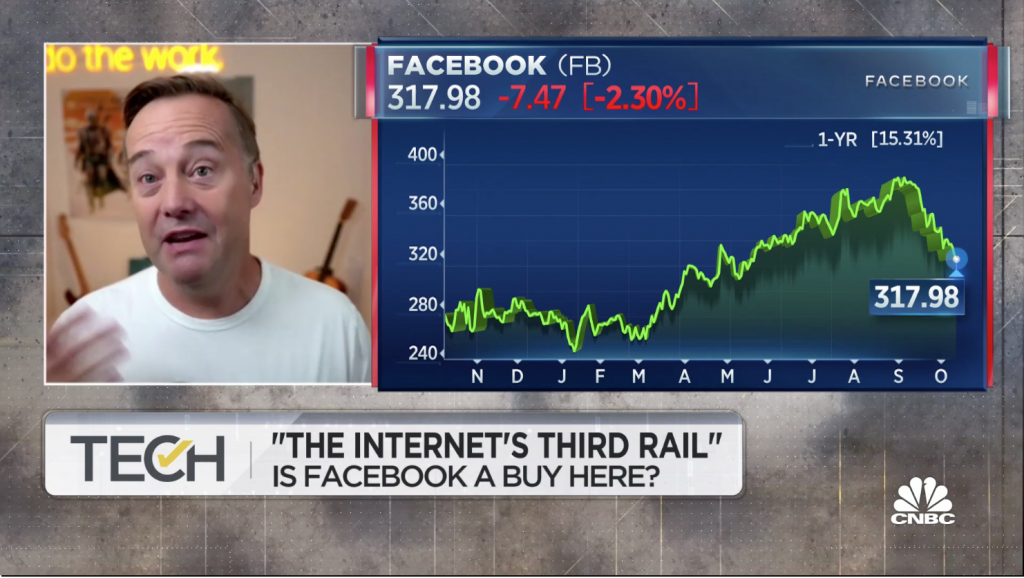
Jason Calacanis, Angel investor, talks to CNBC about Facebook’s new technologies and says they could lead to Facebook’s ‘Microsoft moment’ of shifting gears into a new business paradigm.
Reacting to Negative Publicity, Facebook Works to Pump Up Stock Price with New Tech
Facebook has been the subject of negative news stories in the past few weeks stemming from a trove of internal company research leaked by Frances Haugen, a former Facebook product manager turned whistleblower. Among the research released were slides that showed Instagram was harmful to the mental health of teenagers.
Over the years, Facebook had enormous fines laid on them for one thing or another, this latest rumbling has hit a nerve.
Even stock market analysts have taken notice and made public statements about Facebook’s stock and its moral obligation to fix the Instagram issue.
Writer Slavadore Rodriguez of cnbc.com says Facebook has created a project to redirect attention from these problems. They tested their Glasses to have them train the algorithms that are being used and show the algorithms real-world scenarios over and over again to learn.
The project is called Ego4D, and it could prove to be crucial to Facebook’s Reality Labs division, which is working on numerous projects that could benefit from AI models trained using video footage shot from the perspective of a human. This includes smart glasses, like the Ray-Ban Stories that were released by Facebook last month, and virtual reality, in which Facebook has invested heavily since its 2014 $2 billion acquisition of Oculus.
It is set to be released in November of this year.
“This release, which is an open data set and research challenge, is going to catalyze progress for us internally but also widely externally in the academic community and [allow] other researchers to get behind these new problems but now be able to do it in a more meaningful way and at a greater scale,” Kristen Grauman, lead research scientist at Facebook, told CNBC.
The data set could be deployed in AI models used to train technology like robots to more rapidly understand the world, Grauman said.
“Traditionally a robot learns by doing stuff in the world or being literally handheld to be shown how to do things,” Grauman said. “There’s openings to let them learn from video just from our own experience.”
Facebook used data from all over the planet, teaching the robot about different societies in other cultures. But that’s not all Facebook is up to these days.
The announcement of Ego4D comes at an interesting time for Facebook.
The company has steadily been ramping up its efforts in hardware. Last month, it released the $299 Ray-Ban Stories, its first smart glasses. In July, Facebook announced the formation of a product team to work specifically on the “metaverse,” which is a concept that involves creating digital worlds that multiple people can inhabit at the same time.
The possibilities for these projects are exciting and can be considered beacons of hope for the next generation of AI users.
read more at cnbc.com







Leave A Comment